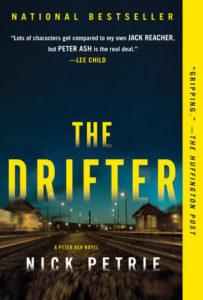One of the few phobias I don’t seem to have is claustrophobia—an oversight that I’m sure my psyche will correct at some point in the near future—but I certainly have enjoyed writing about it. In Last Words, I took characters into pitch-black caves with ever-tightening walls and blind passages, and nothing pleased more than to hear from readers who told me they felt physically uncomfortable during those sequences. If they lost sleep and suffered anxiety, well, that was obviously very rewarding. If She Wakes offers a claustrophobia of a different kind, and one that was far more chilling to me because of the complete loss of control it represented.
Locked-in syndrome is a condition in which a patient is paralyzed and exhibits no outward signs of awareness, deemed by doctors to be in a vegetative state…and yet, in reality, the patient has full awareness, full cognitive and emotional range, and no ability to communicate that to the outside world.
Tara Beckley, the character who emerges from a coma and into the experience of locked-in syndrome in If She Wakes, presented a challenge for me as a writer: how to share that sensation with the reader, how to inhabit her existence while also allowing her to be active, to direct and redirect the narrative. None of that works if the emotional experience isn’t captured, though, which felt to me like the ultimate in claustrophobia—trapped in your own body and unable to signal your existence.
If I’ve done my job, I’ll be able to create at least a sense of that experience for the reader. Here are just a few of the books that have captured claustrophobia for me, putting that tightening-vise around my heart with each page.
The Drifter, by Nick Petrie
Nick Petrie beautifully captures the “white static” claustrophobia of his PTSD-suffering hero, Peter Ash. A terrific thriller by a skilled and thoughtful writer.
The Hunger, by Alma Katsu
I think the terror of watching avenues of escape vanish into the rearview mirror is one of the finest, most excruciating experiences a writer can deliver, and Alma Katsu nails it in this novel inspired by the very real horror of the Donner Party.
Slade House, by David Mitchell
Push along the narrow alley with the brick wall, and you’ll find an open door – and a stranger who will greet you by name and welcome you in. Here’s my advice: don’t listen. Spoiler alert: the characters ignore my advice.
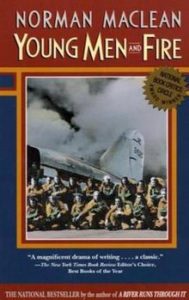
Young Men and Fire, by Norman Maclean
This one is non-fiction, and it is one of my all-time-favorite reads, an inspiration for my novel, THOSE WHO WISH ME DEAD. The scenario would seem like the polar opposite of claustrophobia: leaping out of a plane and into thousands of acres of open wilderness. When Maclean puts the doomed smokejumpers on the clock in Mann Gulch, though, the resulting emotional squeeze is terrifying – and heartbreaking.
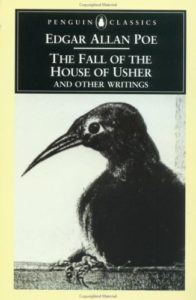
“The Fall of the House of Usher,” by Edgar Allan Poe
The classic clinic in claustrophobia. Beware of entombing the rosy-cheeked dead.
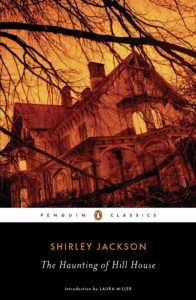
The Haunting of Hill House, by Shirley Jackson
Another all-time great, a remarkable achievement in deft psychological suspense, penned by a writer who understands that true terror is conjured within the minds of the characters and not just the surroundings. Hill House is unsettling, yes, but none of it works without Jackson’s emotional range.

What Stands in a Storm, by Kim Cross
This non-fiction story of a devastating tornado seals you in tight with the characters. Cross uses a beautiful narrative device of building the rising supercell storm alongside the daily lives of those in its path, and the result is excruciating tension.
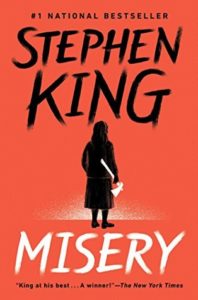
Misery, by Stephen King
I could pick a half-dozen offerings from King – one might easily argue that GERALD’S GAME or THE SHINING is more claustrophobic – but I’ll go with MISERY for King’s adept stacking of struggles on poor Paul Sheldon, from Annie Wilkes to his physical maladies to his drug addiction all the way down to the damned typewriter and its missing keys.

Black Water, by Joyce Carol Oates
This a haunting novel that parallels the Chappaquiddick accident in which Mary Jo Kopechne drowned (although Oates has insisted that wasn’t the goal, saying “I wanted the story to be somewhat mythical, the almost archetypal experience of a young woman who trusts an older man and whose trust is violated,”) with remarkable results. The novel reads like a tragic ballad, and Oates writes with vivid, chilling, and at times hallucinatory prose. From the first sentence to the memorable final words, you’re absolutely locked in with this one.


